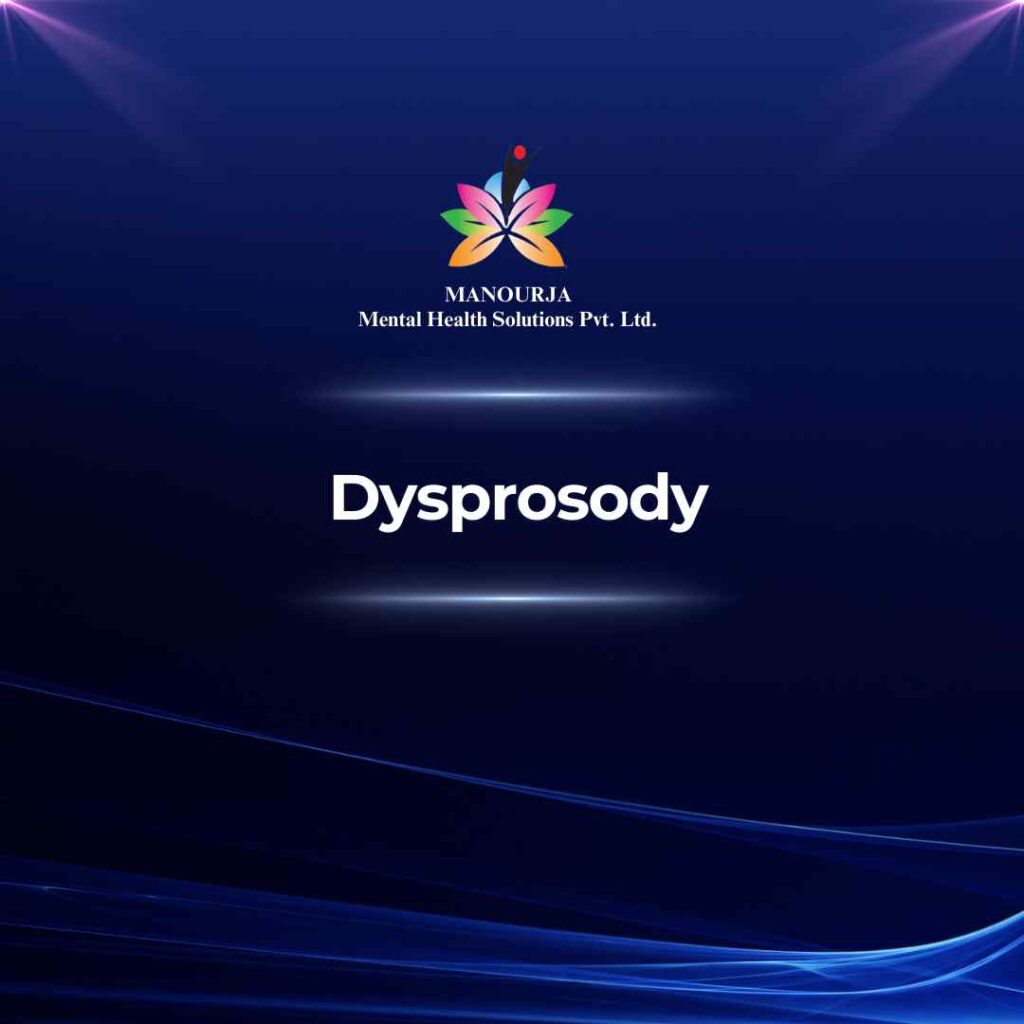Dysprosody

Dysprosody is a speech disorder that affects the rhythm, intonation, and stress patterns of speech, making it sound unusual or non-native. Individuals with dysprosody may have speech that sounds monotone, overly rhythmic, or irregular, and their emotional expressions through speech may seem inappropriate or mismatched with the context. This condition does not affect the grammatical aspects or the content of speech, but rather the prosodic features, which include pitch, loudness, tempo, and rhythm.
Dysprosody as a Sign and Symptom of Mental Illness
Dysprosody can be indicative of underlying neurological or psychological conditions. It can significantly impact communication and social interactions, leading to misunderstandings and social isolation. The condition may arise due to brain injury, developmental disorders, or psychiatric conditions that affect the neural pathways responsible for speech production and regulation.
Mental Illnesses and Conditions Associated with Dysprosody
- Stroke
A stroke can damage areas of the brain responsible for speech and language, including those that control prosody. Dysprosody may occur as a result, depending on the location and severity of the stroke.
- Traumatic Brain Injury (TBI)
Traumatic brain injuries can lead to dysprosody if the regions of the brain involved in speech and language processing are affected. This can result in changes to speech rhythm and intonation.
Parkinson’s disease is a neurodegenerative disorder that affects motor control, including the muscles involved in speech. Dysprosody in Parkinson’s patients can manifest as a monotone voice or irregular speech patterns due to muscle rigidity and reduced control.
- Multiple Sclerosis (MS)
Multiple sclerosis, an autoimmune disease that affects the central nervous system, can lead to dysprosody. Lesions in the brain and spinal cord can disrupt the neural pathways that control speech prosody, resulting in abnormal speech patterns.
- Autism Spectrum Disorder (ASD)
Individuals with autism spectrum disorder may exhibit dysprosody as part of their communication challenges. This can include unusual intonation, rhythm, and stress patterns, making their speech sound atypical or robotic.
In schizophrenia, dysprosody can occur as part of the broader spectrum of speech and thought disorders. Patients may exhibit flat, monotone speech or inappropriate intonation that does not match the emotional context of their speech.
- Tourette Syndrome
Tourette syndrome, a neurological disorder characterized by repetitive movements and vocalizations (tics), can also involve dysprosody. Vocal tics can disrupt the natural flow and prosody of speech.
- Aphasia
Aphasia, often resulting from stroke or brain injury, can include dysprosodic elements. While aphasia primarily affects language content and comprehension, dysprosody can occur if the neural pathways for speech rhythm and intonation are impacted.
- Foreign Accent Syndrome
Foreign accent syndrome is a rare condition often resulting from brain injury, where individuals speak with a perceived foreign accent. This condition involves dysprosody, as the changes in speech patterns and intonation contribute to the altered accent.
- Psychiatric Conditions
Certain psychiatric conditions can include dysprosody as a symptom, particularly if they affect cognitive and emotional regulation. For instance, severe mood disorders or psychotic episodes can disrupt normal speech patterns.
Conclusion
Dysprosody is a significant speech disorder affecting the prosodic features of speech, often linked to neurological or psychological conditions. Recognizing and addressing dysprosody is crucial for improving communication abilities and social interactions, and for diagnosing and treating the underlying conditions.
At MANOURJA, we believe in the transformative power of counseling. Our experienced therapists offer a safe and supportive space where you can explore your thoughts, emotions, and challenges. Through personalized counselling sessions, we’ll work together to develop coping strategies, build resilience, and achieve lasting positive change. Discover the path to a healthier, happier you with MANOURJA counselling services.
MANOURJA Rehabilitation Services
At MANOURJA, we’re dedicated to helping you in rebuild your life, after difficult times. Our rehabilitation services focus on understanding what you need to move forward, whether you’re recovering from addiction, trauma, or any psychological – social challenges. We create personalized plans, that are all about helping you, regain your strength and find hope again. With a caring team by your side, you’ll have the support to make real progress and take steps toward a brighter, healthier future.
